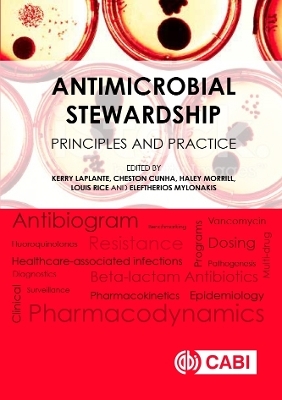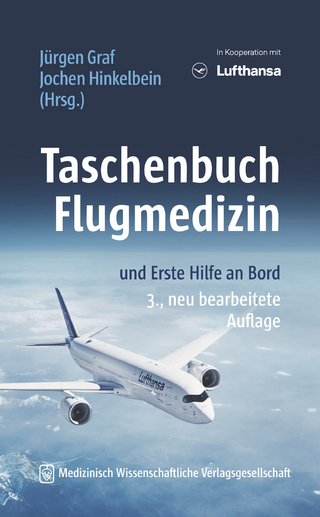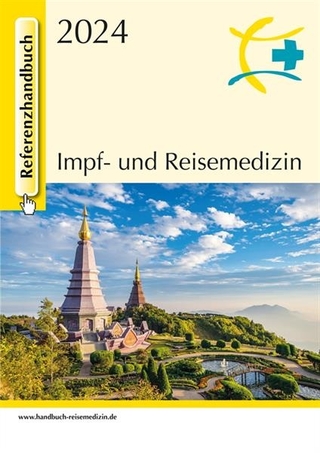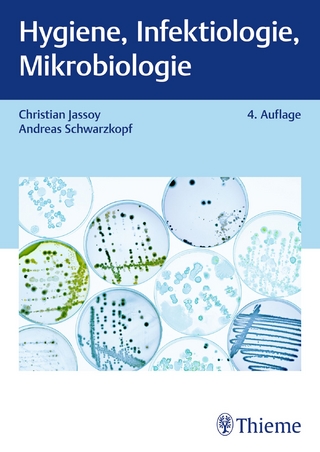
Antimicrobial Stewardship
CABI Publishing (Verlag)
978-1-78064-439-4 (ISBN)
In an age where antimicrobial resistance amongst pathogens grows more prevalent, particularly in the hospital setting, antimicrobial stewardship is an evidence-based, proven measure in the battle against resistance and infection. This single comprehensive, definitive reference work is written by an international team of acknowledged experts in the field. The authors explore the effective use of coordinated antimicrobial interventions to change prescribing practice and help slow the emergence of antimicrobial resistance, ensuring that antimicrobials remain an effective treatment for infection. Amongst the first of its kind, this book provides infectious disease physicians, administrators, laboratory, pharmacy, nursing and medical staff with practical guidance in setting up antimicrobial stewardship programs in their institutions with the aim of selecting the optimal antimicrobial drug regimen, dose, duration of therapy, and route of administration.
Eleftherios Mylonakis is a physician-scientist and his work focuses on the study of microbial pathogenesis and drug discovery. His research has developed a novel alternative to studying bacterial and fungal infection and host responses: the use of invertebrate model hosts. These surrogate invertebrate hosts fill an important niche in fungal pathogenesis research. His investigations have identified novel virulence factors, cross kingdom pathogen-pathogen interactions, novel antifungal agents and evolutionarily conserved traits that are involved in host virulence and immune responses during infection. Recently, Dr. Mylonakis implemented high-throughput whole-animal Caenorhabditis elegans assay to screen libraries of chemical compounds and identify those with antimicrobial activity. In vivo evaluation of libraries of chemical compounds could solve some of the main obstacles in current antifungal discovery, such as finding new classes of compounds and solving the bottleneck of toxicity/efficacy testing. This approach challenges the position that studies in fungal pathogenesis should focus on the analysis of the "host", the "pathogen", or the "antimicrobial compound". Dr. Mylonakis has published over 150 articles in the scientific literature and his studies have been supported by peer-reviewed grants from the National Institutes of Health and private foundations. He is the founding Editor-in-Chief of the journal Virulence and serves on the editorial boards of many publications and as an ad hoc reviewer for over 40 journals.
Part I: Overview of Antibiotic Stewardship Ch.1: Principles of Antimicrobial Stewardship Ch 2: Clinical Perspective of Antimicrobial Stewardship Ch 3: History of Antimicrobial Stewardship Ch 4: The Importance of Education in Antimicrobial Stewardship Part II: Antibiotic Resistance Principles in Antibiotic Stewardship Ch 5: Intrinsic and Acquired Mechanisms of Resistance Ch 6: Antimicrobial Resistance: Selection vs. Induction Ch 7: Colonization and its importance for emergence of clinical resistance Ch 8: Antibiotic Resistance: associations and implications for antibiotic usage strategies to control multi-resistant bacteria Part III: Microbiology Laboratory Role in Antibiotic Stewardship Ch 9: The role of active surveillance in the prevention of healthcare-acquired infections and antibiotic stewardship Ch 10: Role of Antibiogram in Antibiotic Stewardship Ch 11: Selective Reporting and Antimicrobial Stewardship Ch 12: Role of New Diagnostics to Enhance Antibiotic Stewardship Efforts Part IV: Infection Control Aspects of Antibiotic Stewardship Ch 13: Epidemiology of S aureus and enterococci in children and an overview of antimicrobial resistance Ch 14: Epidemiology of multi-drug resistant gram-negative organisms Ch 15: Pathogenesis and Epidemiology of Clostridium difficile Infection: Implications for Antibiotic Stewardship Ch 16: Role of the Hospital Epidemiologist in Supporting Antimicrobial Stewardship Part V: Pharmacokinetic (PK) & Pharmacodynamic (PD) Aspects of Antibiotic Dosing in Antibiotic Stewardship Ch 17: Principles of Pharmacokinetic / Pharmacodynamic Optimization for Antibiotic Dosing Ch 18: Optimal use of Gram-negative antibiotics in the real world: providing effective therapy while minimizing resistance Ch19: Optimal Use of Fluoroquinolones Ch 20: Optimal Use of Beta-lactam Antibiotics Ch 21: Current Approach to Optimal Use and Dosing of Vancomycin in Adult Patients Ch 22: Principles of IV to PO Switch Part VI: Pharmacy Department Role in Antibiotic Stewardship Ch 23: Role of Pharmacists in Antimicrobial Stewardship Ch 24: Formulary Management and Economic Considerations; Bridging the Gap between Quality Care and Cost Ch 25: Approaches in benchmarking Ch 26: Development and execution of stewardship interventions Ch 27: Technologic support for antimicrobial stewardship Part VII: Measuring Outcomes in Antibiotic Stewardship Programs Ch 28: Role of Guidelines and Statistical Milestones for Antimicrobial Stewardship Ch 29: Economic considerations of Antimicrobial Stewardship Programs Ch 30: Pharmacoeconomic Implications of Antimicrobial Adverse Events Ch 31: Antimicrobial stewardship programs in areas of increased pathogen resistance Part VIII: Antimicrobial Stewardship and Various Practice Sites Ch 32: Role of Antimicrobial Stewardship in Pediatrics Ch 33: Antimicrobial Stewardship in the Intensive Care Unit Ch 34: Role of Antimicrobial Stewardship in a Community Hospital Ch 35: Outpatient Parenteral Antimicrobial Therapy (OPAT) Ch 36: The Importance of Interdisciplinary Collaboration in Antimicrobial Stewardship: Immersion of Future Healthcare Professionals Ch 37: Antimicrobial Stewardship and the Importance of Working with the Government and Pharmaceutical Industry Ch 38: Hospitalist Perspective on the Role of Antimicrobial Stewardship
| Erscheinungsdatum | 30.12.2016 |
|---|---|
| Co-Autor | Thomas Lodise, John McNelis, Powel Kazanjian, Armen Arshakyan, Cesar Arias |
| Verlagsort | Wallingford |
| Sprache | englisch |
| Maße | 189 x 246 mm |
| Gewicht | 1311 g |
| Themenwelt | Medizin / Pharmazie ► Medizinische Fachgebiete ► Mikrobiologie / Infektologie / Reisemedizin |
| ISBN-10 | 1-78064-439-6 / 1780644396 |
| ISBN-13 | 978-1-78064-439-4 / 9781780644394 |
| Zustand | Neuware |
| Haben Sie eine Frage zum Produkt? |
aus dem Bereich


